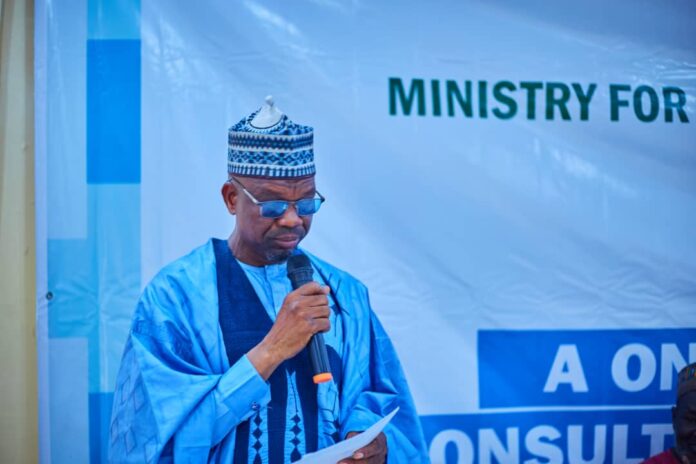The development of the Sokoto State Gender-Based Violence (GBV) Action Plan marks a significant step toward addressing the pervasive issue of gender-based violence in the state.
A stakeholders meeting on the development of action plan was conducted on June 21, 2025.
Alhaji Alhaji the permanent Secretary of Ministry of Women and Children Affairs disclosed this to the newsmen noting that anchored in national and international frameworks, including the Violence Against Persons (Prohibition) Act (VAPP), the National Gender Policy, and the Sustainable Development Goals (SDGs).
The action plan aims to provide a comprehensive and coordinated response to GBV, promote prevention strategies, and ensure access to justice and support services for survivors.
” This initiative was spearheaded through a multi-sectoral and participatory process involving key stakeholders from government ministries, departments, and agencies (MDAs), civil society organizations (CSOs), traditional and religious leaders, security agencies, and development partners.
” Through a series of consultative meetings, workshops, and technical sessions, the stakeholders identified prevailing GBV trends, existing gaps, and priority areas for intervention.
” The resulting GBV Action Plan is structured around five key pillars: prevention, protection, response, coordination, and monitoring and evaluation.
It outlines specific objectives and actionable strategies, including awareness creation, community engagement, legal reform and enforcement, capacity building for service providers, establishing referral systems, and survivor-centered care.
A clear implementation framework has been developed, highlighting roles, timelines, and resource requirements.
By adopting this action plan, Sokoto State demonstrates its commitment to eliminating gender-based violence, safeguarding the rights of vulnerable populations, and promoting a safer, more equitable society.
The plan serves as a guiding framework for action and a catalyst for sustained investment and collaboration among stakeholders to end GBV in all its forms.
Key recommendations highlighted at the program include the following: Effective sensitization and stepdown of laws to surveillance team members at the ward level, violence in any form should be preached in all the activities of the Religious leaders,
Others included rehabilitation of perpetrators, effective collaboration between stakeholders on GBV prevention and response, and capacity building for religious and traditional leaders on the concept of gender.




